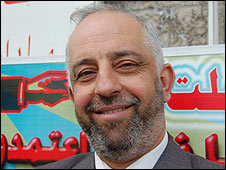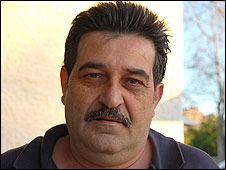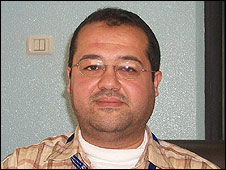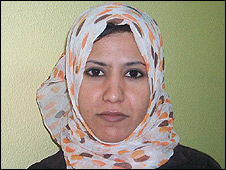EDITOR: Breaking News – Peace agreement to be signed next month in Jerusalem!
It would of course be nice to have this headline some time soon, but unfortunately it is only an April Fool’s line… In the meantime, as expected, the whole affair of Netanyahu’s rejection of the US demands seems to have been carefully taken off the headlines. US papers avoid it like the plague, and even in Israel they moved on, as the show seems to have ended, at least this round of it, with Israel getting off scot free, as usual.
Likud MK: Not even ‘Hussein Obama’ will remove us from Hebron: Haaretz
Thousands of Israelis gathered Thursday at the Cave of the Patriarchs in the West Bank city of Hebron to celebrate the addition of the location to Israel’s list of national heritage sites, a move initiated by the Land of Israel caucus in the Knesset.
“The masses that have come here, including the 40 members of the Land of Israel caucus, are a guarantee and proof that no one will move us from the Cave of the Patriarchs, not even Hussein Obama,” MK Ayoob Kara (Likud) told the crowd.
“The Prime minister needs to say ‘no’ to Barack Hussein Obama, and ‘yes’ to the people of Israel, who have come here in their multitudes today. He needs to grant permits to start building in settlements and in all of Israel,” he added.
MK Tzipi Hotovely (Likud) responded to Prime Minister Benjamin Netanyahu’s recent comments comparing construction in Tel Aviv and Jerusalem, saying, “We love Tel Aviv, but it is 101 years old, while Jerusalem is 3,000 years old and Hebron is 4,000 years old.”
“On this holiday, which marks our passage from slavery to freedom, we need to maintain our freedom and not let anyone dictate to us where we can and cannot build,” she added.
Bus loads of people arrived at the controversial site in Hebron from the early hours of the morning, including several right-wing members of Knesset.
A U.S. State Department official on Thursday said, “We understand that tensions are high [in Hebron].”
“We continue to urge all parties to act responsibly and do whatever is necessary to maintain calm,” the official added.
MK Gila Gamliel (Likud), who joined in the celebration, said that Jerusalem will forever remain the capital of Israel, and Hebron has always been a part of Israel.
Earlier on Thursday, an Israeli woman was lightly hurt after Palestinians hurled stones at the tour bus she was riding on in Hebron.
The bus, which was bringing the tourists to the Cave of the Patriarchs in Hebron, mistakenly entered the Palestinian part of the city and was stoned by school students.
Israel Defense Forces soldiers deployed to the area to disperse the crowd. The injured woman was taken to Hadassah University Hospital, Ein Karem, for treatment.
Prime Minister Benjamin Netanyahu announced last month that the Cave of the Patriarchs in Hebron and Rachel’s Tomb in Bethlehem would both be added to the list of national heritage sites that the government plans to promote.
The move drew protests from the Palestinians, who said it could ignite a religious war, and criticism from the United Nations and United States, who said the designation of the two sites could harm efforts to renew peace talks between Israel and the Palestinians.
MKs who worked toward having the two shrines declared heritage sites were to receive special certificates of appreciation and a musical program was scheduled for Thursday’s ceremony.
The Cave of the Patriarchs was to be open only to Jews for the day.
When Israel and France Broke Up: N Y Times
IN the face of rising tensions between the United States and Israel over housing construction in East Jerusalem, the Obama administration has rushed to reassert what Secretary of State Hillary Clinton recently called the “unshakable bond” between the two countries.
No doubt, that relationship rests on enduring foundations, including broad American public sympathy for a besieged democracy, a mutual strategic interest in resisting Arab extremism and a sense of moral duty to preserve the Jewish people after the Holocaust.
But if Israeli Prime Minister Benjamin Netanyahu tries to push his luck on settlements or the peace process, he would do well to remember an unnerving precedent: Israel’s loss, in 1967, of what had been a robust alliance with France.
The French-Israeli relationship began in the mid-1950s, when Israel became a major customer for the French arms industry. But the bond was not merely commercial: at the time France was trying to quash a rebellion in Algeria, and it shared with Israel a strategic interest in combating radical Arab nationalism. In 1956, France and Israel even fought together against Egypt in the Suez crisis.
The tacit alliance, championed by Israel’s deputy defense minister, Shimon Peres, deepened during the late ’50s and early ’60s through military cooperation and cultural exchanges. French technical assistance helped Israel get nuclear weapons, and France supplied the advanced military aircraft that became the backbone of the Israeli Air Force.
The relationship only grew warmer when Charles de Gaulle, the World War II hero, took over as French president in 1959. He recognized the historic justice of a Jewish “national home,” which he saw “as some compensation for suffering endured through long ages,” and he heaped praise on David Ben-Gurion, Israel’s founding prime minister, as one of the “greatest leaders in the West.”
The bilateral bonds ran outside the government, too, with strongly pro-Israel public opinion, both among French Jews and non-Jews. But with the end of the Algerian war in 1962, de Gaulle began mending France’s ties to the Arab world and the relationship came under strain. For a while, France tried to balance its relationships: Israeli officials were heartily welcomed in Paris, and de Gaulle continued to speak of Israel as “the ally and friend” of France.
This double game, however, ended when the Six-Day War in 1967 forced France to pick a side. In a shock to its Israeli allies, it chose the Arab states: despite aggressive moves by Egypt, France imposed a temporary arms embargo on the region — which mostly hurt Israel — and warned senior Israeli officials to avoid hostilities.
When Israel launched a pre-emptive strike on June 5, France condemned it — even as Israel’s nearly immediate aerial victory was won largely with French-made aircraft.
A few months later de Gaulle bluntly told reporters that France had “freed itself … from the very special and very close ties” with Israel, nastily adding that Jews were “an elite people, sure of itself, and dominating.”
This was not a sentimental stance: de Gaulle had made a strategic decision to bolster France’s stature in the vast Arab world, which in 1967 meant largely abandoning Israel. France proceeded to make the arms embargo on Israel permanent, sought oil deals with the Arab states and adopted increasingly anti-Israel rhetoric.
Of course, American public support for Israel is even more deeply ingrained than it was in France, and it is hard to imagine that anyone in President Obama’s staunchly pro-Israel White House is contemplating anything like de Gaulle’s sudden reversal.
Still, there are potentially disquieting similarities. Like de Gaulle after Algeria, President Obama understands the strategic importance of improving relations with the Arab and Muslim worlds after years of bloodshed in Iraq and Afghanistan. And so long as the Israeli-Palestinian peace process remains stalled, Washington’s relationships with Israel and the Arab states may look to some in the administration like a zero-sum game.
In the same way that many French officials tried to balance France’s relationships in the Middle East after the end of the Algerian war, Mr. Obama undoubtedly hopes that he can reach out to the Arab world without damaging ties with Israel. But this history suggests that Mr. Netanyahu would be wise to ease the strain on the alliance before any words are uttered that cannot be unsaid.
Gary J. Bass is a professor of politics and international affairs at Princeton and the author of “Freedom’s Battle: The Origins of Humanitarian Intervention.”
Open Letter to Berkeley Students on their Historic Israeli Divestment Bill: Naomi Klein
By Naomi Klein – March 31st, 2010
On March 18, continuing a long tradition of pioneering human rights campaigns, the Senate of the Associated Students of the University of California, Berkeley (ASUC) passed “A Bill In Support of UC DIVESTMENT FROM WAR CRIMES.” The historic bill resolves to divest ASUC’s assets from two American companies, General Electric and United Technologies, that are “materially and militarily supporting the Israeli government’s occupation of the Palestinian territories”—and to advocate that the UC, with about $135 million invested in companies that profit from Israel’s illegal actions in the Occupied Territories, follow suit.
Although the bill passed by a vote of 16-4 after a packed and intense debate, the President of the Senate vetoed the bill six days later. The Senate is expected to reconsider the bill soon; groups such as Jewish Voice for Peace are asking supporters of the bill to send letters to the Senators, who can overturn the veto with only 14 votes.
Here is the letter I just sent:
Dear members of the ASUC Senate,
I am writing to urge you to reaffirm Senate Bill 118A, despite the recent presidential veto.
It comes as no surprise that you are under intense pressure to reverse your historic and democratic decision to divest from two companies that profit from Israel’s occupation of Palestinian territory. When a school with a deserved reputation for academic excellence and moral leadership takes such a bold position, it threatens to inspire others to take their own stands.
Indeed, Berkeley—the campus and the wider community—has provided this kind of leadership on many key issues in the past: not only Apartheid in South Africa but also sweatshops in Indonesia, dictatorship in Burma, political killings in Nigeria, and the list goes on. Time and again, when the call for international solidarity has come from people denied a political voice, Berkeley has been among the first to answer. And in virtually every case, what began as a small action in a progressive community quickly spread across the country and around the world.
Your recent divestment bill opposing Israeli war crimes stands to have this same kind of global impact, helping to build a grassroots, non-violent movement to end Israel’s violations of international law. And this is precisely what your opponents—by spreading deliberate lies about your actions—are desperately trying to prevent. They are even going so far as to claim that, in the future, there should be no divestment campaigns that target a specific country, a move that would rob activists of one of the most effective tools in the non-violent arsenal. Please don’t give into this pressure; too much is on the line.
As the world has just witnessed with the Netanyahu government’s refusal to stop its illegal settlement expansion, political pressure is simply not enough to wrench Israel off its current disastrous path. And when our governments fail to apply sanctions for defiant illegality, other forms of pressure must come into play, including targeting those corporations that are profiting directly from human rights abuses.
Whenever we take a political action, we open ourselves up to accusations of hypocrisy and double standards, since the truth is that we can never do enough in the face of pervasive global injustice. Yet to argue that taking a clear stand against Israeli war crimes is somehow to “discriminate unfairly” against Israelis and Jews (as the veto seems to claim) is to grossly pervert the language of human rights. Far from “singling out Israel,” with Senate Bill 118A, you are acting within Berkeley’s commendable and inspiring tradition.
I understand that there is some debate about whether or not your divestment bill was adopted “in haste.” Not having been there, I cannot comment on your process, though I am deeply impressed by the careful research that went into the decision. I also know that in 2005 an extraordinarily broad range of Palestinian civil society groups called on activists around the world to adopt precisely these kinds of peaceful pressure tactics. In the years since that call, we have all watched as Israeli abuses have escalated dramatically: the attack on Lebanon in the summer of 2006, a massive expansion of illegal settlements and walls, an ongoing siege on Gaza that violates all prohibitions on collective punishment, and, worst of all, the 2008/9 attack on Gaza that left approximately 1,400 dead.
I would humbly suggest that when it comes to acting to end Israeli war crimes, the international response has not suffered from too much haste but from far too little. This is a moment of great urgency, and the world is watching.
Be brave.
Yours sincerely,
Naomi Klein
Peace talks: Palestinian views: BBC
With planned indirect Israeli-Palestinian negotiations on hold after a row over settlement building in East Jerusalem, Palestinians from Gaza and the West Bank give their views on the prospects for peace.
 ADEL HASSAN RASHED, 81, UNEMPLOYED, NABLUS
ADEL HASSAN RASHED, 81, UNEMPLOYED, NABLUS
We should never go back to negotiations. The solution is always in the hands of the US, but we expect nothing from them. They are the only power in the world – and the Israeli have no-one standing against them.
The idea of the two-state solution is like morphine [ie used to anaesthetise the Palestinians]. There is nothing called a solution. They just keep taking the land from us and building for themselves. Israel took everything from us and the Americans are backing them up, even with weapons.
The only option we have is to take back with force what they took from us. When we have the real power to fight, we will – but not now, we have no power.
 KHADER SAMARITAN, DIRECTOR OF RESEARCH CENTRE, 55, NABLUS
KHADER SAMARITAN, DIRECTOR OF RESEARCH CENTRE, 55, NABLUS
I think it’s better for us to have direct negotiations with Israel, because there is no-one to talk on our behalf in indirect ones.
Face to face talks are better, but the condition for these should be to stop the settlement activity. – and not just for eight months.
East Jerusalem is internationally known as the capital of the future Palestinian state and west Jerusalem is the capital for the Israelis – this should be the two-state solution.
Peace is the key to everything. I’m not convinced about military resistance. The people are already suffering from the economic situation and the first and second intifidas. The people of the world have heard our voices, and all the world is standing behind us – to have a third intifada now would just hurt our own people.
 RUBA ZAGHMOURI, 24, ARTS CENTRE WORKER, RAMALLAH
RUBA ZAGHMOURI, 24, ARTS CENTRE WORKER, RAMALLAH
It’s not about whether Mahmoud Abbas should go into talks or not. Whether he does or doesn’t go into them, I don’t think the result will satisfy the Palestinian people.
I don’t want a two state solution. Definitely not. A two-state solution could be done when we have equal grounds, both the Palestinians and Israelis, but without us Palestinians having basic rights, you can’t discuss a two-state solution.
I have never believed in a two-state solution. I want to be free. I want to live in peace. I want to be able to live here in Ramallah without going back and forth to Jerusalem for my ID problems. I don’t want to have to go to Amman just to use an airport. I don’t want anyone to be killed, and I don’t want anything to be stolen from us.
What I want is so confused at the moment. I feel like Palestinian and Israeli leaders are all lying to us. It’s becoming really difficult for the new generation to weigh what’s right and wrong and what we actually want out of all of this. We know we want peace, but how it could be achieved – this is what we don’t know.
 AYMAN AL-NAZER, DENTIST, 48, RAMALLAH
AYMAN AL-NAZER, DENTIST, 48, RAMALLAH
I believe that all the negotiations with Israel should be stopped. The Arab street should take a different way. We’ve been negotiating for 20 years now, for nothing.
I still support peaceful resistance, but everyone knows what the other option is, and the other option will happen if the Israelis don’t sit down for real negotiations.
Unfortunately the Jewish people don’t want peace.
You can see the facts on the ground. The whole world can see what’s going on on the ground. There is no way to achieve peace with these people.
AMINA AL-HASANAT, SALES DIRECTOR, 22, GAZA
I believe that negotiations are the only solution to the Arab-Israeli conflict, but must be done in the right way.
To take steps to improve the conditions for negotiations, the Arab leaders should maintain pressure on Israel to accept negotiations based on international legitimacy and United Nations resolutions. Israel must stop settlement activity in Jerusalem and the West Bank and recognise the rights of the Palestinian people.
I dream of a two-state solution which is based on a viable independent Palestinian state, side-by-side with Israel. We must find a unified Palestinian strategy to support the position of the Palestine Liberation Organisation, because Israel is taking the division between the Palestinians as an excuse to stop negotiations and continue attacks against the Palestinian people.
 MOHAMMED OMAR TAHA, ACCOUNTANT, 32, GAZA
MOHAMMED OMAR TAHA, ACCOUNTANT, 32, GAZA
Negotiations would be a waste of time. We have negotiated for more than 15 years, but we got nothing but siege and settlements, killing and destruction.
The Arab leaders should take a decision to stop negotiating and go for the military option against Israel, which knows only the language of force.
The two-state solution is a big lie. We must end the division [between Palestinians] first and then take a clear decision to stop the negotiations and security co-ordination with Israel, and go to the option of resistance by all means – popular resistance and armed resistance if necessary.
